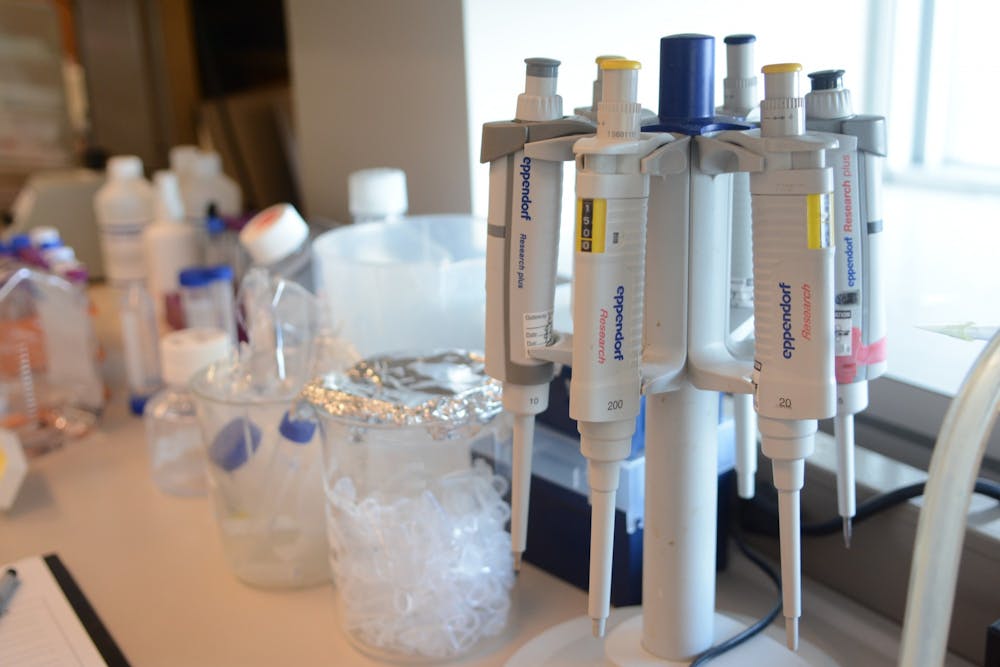
Penn Medicine's Gene Therapy Program and the Center for Breakthrough Medicines have signed a milestone agreement to collaborate on developing advanced gene therapies.
GTP — directed by Penn Medicine physician and professor of medicine James Wilson — aims to develop and commercialize gene therapeutics with a focus on patients with inherited genetic diseases.
The partnership with CBM grants GTP access to a manufacturing facility with 700,000 square feet in planned capacity as well as a sponsored research agreement. GTP will receive up to $100 million through the sponsored research agreement over 15 years, the Philadelphia Business Journal reported.
The renewable five-year agreement will focus on applying GTP’s expertise to CBM’s larger-scale manufacturing capacity, allowing promising gene therapies to enter clinical stages and eventually the commercial market sooner and with fewer risks. Other goals for the partnership include decreasing development costs and increasing treatment accessibility for patients.
CBM is a cell and gene therapy contract development and manufacturing organization that provides pre-clinical development via advanced therapy manufacturing to incubators, companies, universities, and independent researchers.
Gene therapy itself involves the transfer of genetic material into patients’ cells to “treat and cure both rare and non-rare hematological, ophthalmic, musculoskeletal and neurologic diseases such as hemophilia, choroideremia, Duchenne muscular dystrophy, and Huntington’s disease, as well as oncology solid and non-solid tumor diseases," according to CBM's press release.
In November 2021, the DP revealed that the toxic, disorganized work environment at GTP, led by Wilson, led to high turnover rate and low morale among employees. Several employees filed formal complaints and spoke to GTP’s human resources department as well as the Perelman School of Medicine’s human resources department, to no avail.
Under the agreement, CBM will be the only for-profit commercial development and manufacturing organization with commercial rights to certain gene therapy manufacturing platforms, advanced analytics, and future process or analytical improvements achieved through collaboration with the GTP.
“Our collaboration with the GTP at Penn will allow CBM the ability to offer accelerated gene therapy manufacturing services under one roof regardless of where a program is in its development timeline,” President and CEO of CBM Joerg Ahlgrimm said in the press release. “With this access to GTP’s gene therapy production expertise, CBM becomes an appealing manufacturing partner with a differentiated offering.”
The Daily Pennsylvanian is an independent, student-run newspaper. Please consider making a donation to support the coverage that shapes the University. Your generosity ensures a future of strong journalism at Penn.
Donate




